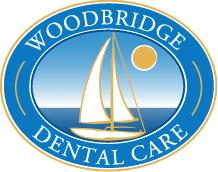Dentist 22192
 The human body is a network of interconnected systems and organs. Unfortunately, issues that impact one particular area of your body can also effect the health and function of other areas. Recently, studies have highlighted evidence for links between gum disease and heart disease.
The human body is a network of interconnected systems and organs. Unfortunately, issues that impact one particular area of your body can also effect the health and function of other areas. Recently, studies have highlighted evidence for links between gum disease and heart disease.
While the exact nature of the connection is still being researched, heart disease is almost twice as likely to occur in people who have gum disease. Nearly half of all Americans have undiagnosed gum disease. In the United States, heart disease is the leading cause of death, making it pertinent that you maintain a healthy heart. The first key to doing so might lie in keeping your gums healthy.
While gum disease may be a contributing factor to heart disease, it is not the only cause. It is essential that you maintain regular visits to your primary care physician as well to measure your overall health. Other factors and lifestyle choices can impact your heart health.
Diet and exercise. Maintain an active lifestyle with activities you enjoy, such as taking walks, riding bikes, playing sports, or doing yoga. Avoid foods high in starches and sugars, including carbonated soft drinks, as they can also damage your teeth.
Don’t smoke. Whether you’re smoking or vaping, nicotine has a detrimental effect on your cardiovascular system and can damage teeth, gums, and lungs. Recent studies have connected vaping to a rapid loss in healthy cells that line the top layer of your mouth. These cells play an essential role in keeping your mouth healthy.
Brush your teeth. The most basic part of oral hygiene is also the most effective. Make sure you brush and floss at least twice a day.
By keeping a balanced, exercising regularly, and taking care of your teeth, you’re taking a holistic approach to your well-being and minimizing your risk of developing heart disease.
As with other diseases, preventing gum disease alone will not completely remove the risk of developing heart disease. However, you can take a proactive approach to keeping your body healthy, starting with your oral health.
To schedule a cleaning and examination, please contact our office.
4315 Ridgewood Center Dr
Woodbridge, VA 22192
(703) 670-4994






 Don’t be fooled by the label “100 percent fruit juice.” Drinks advertised in this way might seem like a healthy choice, but these drinks may be doing more harm than good. In fact, fruit juices contain sugar that can lead to tooth decay. The American Academy of Pediatrics (AAP) recently reevaluated their recommendations for allowing small children to consume fruit juice. Here’s what you need to know about the new guidelines.
Don’t be fooled by the label “100 percent fruit juice.” Drinks advertised in this way might seem like a healthy choice, but these drinks may be doing more harm than good. In fact, fruit juices contain sugar that can lead to tooth decay. The American Academy of Pediatrics (AAP) recently reevaluated their recommendations for allowing small children to consume fruit juice. Here’s what you need to know about the new guidelines. According to the American Dental Association, 50 percent of adults experience bad breath at some point in their life. Although some causes are harmless, other causes may be signaling something more serious. Below are three common causes of bad breath, accompanied by the best remedy for each cause.
According to the American Dental Association, 50 percent of adults experience bad breath at some point in their life. Although some causes are harmless, other causes may be signaling something more serious. Below are three common causes of bad breath, accompanied by the best remedy for each cause. During a comprehensive dental examination, our team will look for signs of oral cancer. Early detection is key with oral cancer. If caught early, most forms of oral cancer are treatable. Our dental team is trained and educated to identify oral cancer.
During a comprehensive dental examination, our team will look for signs of oral cancer. Early detection is key with oral cancer. If caught early, most forms of oral cancer are treatable. Our dental team is trained and educated to identify oral cancer. Do you suffer from regular sensitivity? Teeth sensitivity is often misunderstood, but our dental team can help you find relief. We’re here to separate the fact from fiction in sensitivity.
Do you suffer from regular sensitivity? Teeth sensitivity is often misunderstood, but our dental team can help you find relief. We’re here to separate the fact from fiction in sensitivity.
 Don’t wait until you’re in pain to see your dentist! Most people make time to clean out the house, car, garage, or closets at least twice a year. Why not include your oral health on your “to do” list?
Don’t wait until you’re in pain to see your dentist! Most people make time to clean out the house, car, garage, or closets at least twice a year. Why not include your oral health on your “to do” list? Sugary, sticky, and sweet candies can damage your teeth by increasing your risk of decay. Though gum can be considered a type of candy, chewing sugarless gum approved by the ADA can actually help protect teeth and prevent tooth decay. Here’s what you need to know about gum and your teeth.
Sugary, sticky, and sweet candies can damage your teeth by increasing your risk of decay. Though gum can be considered a type of candy, chewing sugarless gum approved by the ADA can actually help protect teeth and prevent tooth decay. Here’s what you need to know about gum and your teeth. Nearly everyone has at least one habit that they wish they could break. Did you know that some of them can affect your oral health? Here are a few common habits and tips for how to break them.
Nearly everyone has at least one habit that they wish they could break. Did you know that some of them can affect your oral health? Here are a few common habits and tips for how to break them. A canker sore can make eating, drinking, and talking difficult and even painful. Maintaining your oral health by brushing and flossing may also be difficult with a sore in your mouth, but keeping up with your daily oral hygiene routine is an important step in the healing process. We’ve put together a short guide to everything you need to know about canker sores.
A canker sore can make eating, drinking, and talking difficult and even painful. Maintaining your oral health by brushing and flossing may also be difficult with a sore in your mouth, but keeping up with your daily oral hygiene routine is an important step in the healing process. We’ve put together a short guide to everything you need to know about canker sores.